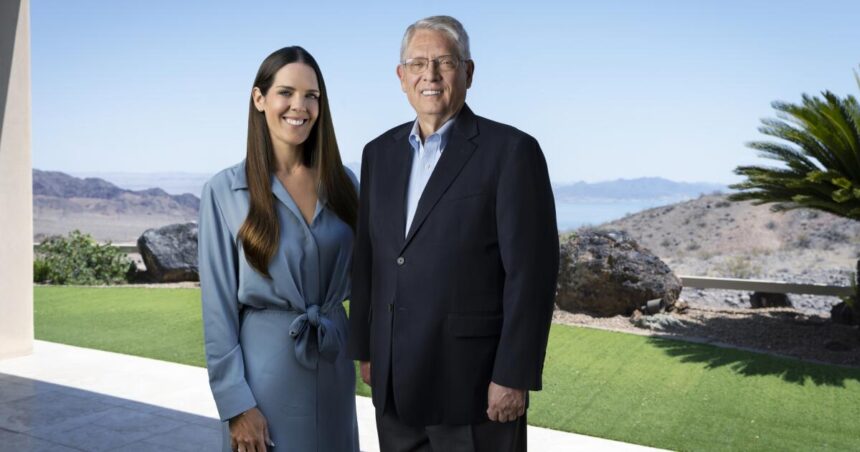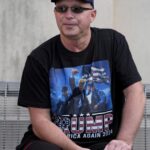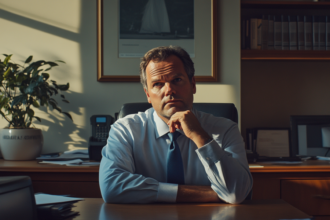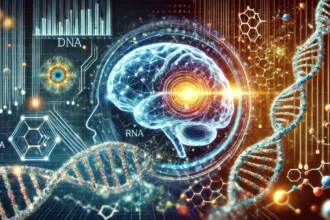For entrepreneur and philanthropist Emmett Stevenson Jr., watching his wife and a friend die from pancreatic cancer served as a wake-up call.
His wife, Toni, a patient at City of Hope, a cancer center based in Duarte, California, died at age 74 after a four-month battle with pancreatic cancer.
Now, Emmett and his daughter Tessa have donated a historic $150 million to City of Hope to help advance research to find a cure for what’s known as the “silent killer.”
“We decided to turn our grief into action and wanted to prevent as few people as possible from going through what we did,” Tessa Stevenson Brand said. “It was fast. It hurt.
The donation is the largest single donation City of Hope has ever received, surpassing the $100 million Panda Express founders Andrew and Peggy Chern gave to the nonprofit last year.
Dr. Arthur Riggs, a world-renowned geneticist and diabetes expert, donated $100 million to his longtime employer, City of Hope, in 2021 before passing away following his battle with a form of blood cancer known as lymphoma.
To accelerate the development of treatments for pancreatic cancer, the Stevensons’ gift will fund a $1 million prize to be awarded annually (beginning in 2025) to a scientist or team leading innovation in this field.
Pancreatic cancer research is underfunded, and City of Hope CEO Robert Stone said the organization is trying to find new ways to cut through bureaucracy so researchers and scientists can make progress at a faster pace. City of Hope said in a news release about the donation that the gift represents nearly two-thirds of the National Cancer Institute’s total annual research budget for pancreatic cancer.
“We’re trying to take a leap and bring in new ideas to challenge the way research has been done in the past,” Stone said.
Emmett Stevenson said the donation, which will be made over a 10-year period, will also help fund grants, an annual symposium and a facility to collect tissue, blood and other materials needed for pancreatic cancer research.
“If we’re fortunate enough to find a cure for pancreatic cancer soon, I’d be happy to put that funding towards the next most deadly disease in the cancer space,” said Stevenson, a former co-founder and chairman of technology company StarTek.
According to the American Cancer Society, pancreatic cancer is the third leading cause of cancer deaths in the United States. estimates that approximately 66,440 people will be diagnosed with pancreatic cancer nationwide in 2024, and 51,750 people will die from the disease.
The pancreas is a large gland located behind the stomach that helps digest food and regulate blood sugar levels. Pancreatic cancer occurs when abnormal cells in the gland grow and form a tumor.
Dr. Daniel D. von Hoff, a professor and cancer scientist at the Translational Genomics Institute in Phoenix, which is part of City of Hope, said pancreatic cancer is hard to detect early because it’s hard to image and people often get tested so frequently because it doesn’t cause symptoms.
Risk factors include smoking, obesity, alcohol, and diabetes, which can cause inflammation in the body. Pancreatic cancer is also expected to become the second leading cause of cancer-related deaths by 2030 as the population ages. According to the National Cancer Institute, it is most frequently diagnosed in people between the ages of 65 and 74.
Known as the “silent killer,” this cancer often doesn’t show symptoms such as fatigue, abdominal pain or loss of appetite before the cancer cells begin to multiply.
“It’s like what a lot of people describe as a toothache, a throbbing sensation,” von Hoff said. “By that point, it may already be too late.”
Genetic testing can help detect tumors early, especially if you have a family history of cancer. However, it’s still possible to develop pancreatic cancer at a young age.
Toni Bravo, a 21-year-old student who grew up in Tarzana, said she went to the emergency room last year because she felt anxious. After she underwent a CT scan, doctors in Indiana found a rare tumor in her pancreas. She became a patient at City of Hope and underwent surgery to remove the tumor from her pancreas.
The scariest thing, she said, is that she had no symptoms or history of pancreatic cancer.
Bravo, a pancreatic cancer survivor, urges people to not let their diagnosis define their life and to listen to their body.
“The journey is hard,” she said, “but it’s made easier by the love of others… and with that mental strength, the journey is possible.”









